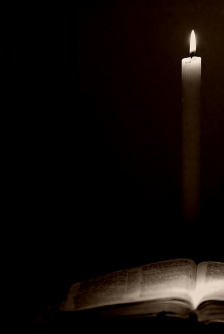July 28, 2024: Tenth Sunday after Pentecost
John 6:1-21
Jesus went to the other side of the Sea of Galilee, also called the Sea of Tiberias. A large crowd kept following him, because they saw the signs that he was doing for the sick. Jesus went up the mountain and sat down there with his disciples. Now the Passover, the festival of the Jews, was near. When he looked up and saw a large crowd coming toward him, Jesus said to Philip, “Where are we to buy bread for these people to eat?” He said this to test him, for he himself knew what he was going to do. Philip answered him, “Six months’ wages would not buy enough bread for each of them to get a little.” One of his disciples, Andrew, Simon Peter’s brother, said to him, “There is a boy here who has five barley loaves and two fish. But what are they among so many people?” Jesus said, “Make the people sit down.” Now there was a great deal of grass in the place; so they sat down, about five thousand in all. Then Jesus took the loaves, and when he had given thanks, he distributed them to those who were seated; so also the fish, as much as they wanted. When they were satisfied, he told his disciples, “Gather up the fragments left over, so that nothing may be lost.” So they gathered them up, and from the fragments of the five barley loaves, left by those who had eaten, they filled twelve baskets. When the people saw the sign that he had done, they began to say, “This is indeed the prophet who is to come into the world.”
When Jesus realized that they were about to come and take him by force to make him king, he withdrew again to the mountain by himself.
When evening came, his disciples went down to the sea, got into a boat, and started across the sea to Capernaum. It was now dark, and Jesus had not yet come to them. The sea became rough because a strong wind was blowing. When they had rowed about three or four miles, they saw Jesus walking on the sea and coming near the boat, and they were terrified. But he said to them, “It is I; do not be afraid.” Then they wanted to take him into the boat, and immediately the boat reached the land toward which they were going.
God comes to us in unexpected ways, often in ways we cannot predict or control. After the miracle of the loaves and fishes, Jesus shocked the disciples by walking on water at the Sea of Galilee. God is a God of surprises, who comes to us at times when we least expect it.
John tells us the disciples had only gone 3-4 miles on the Sea of Galilee, which was probably only about halfway to Capernaum, so their rowing progress was slow and frustrating. It was at this time of frustration and exhaustion that Jesus chose to come to them, perhaps when they were starting to give up hope they would get to Capernaum.
“Then they wanted to take him into the boat” (John 6:21) which signifies the disciples’ willingness to bring Jesus on board. This line suggests to us the importance of opening ourselves to God’s presence when we are discouraged. We have to say “yes” to God before God can help bring about life-giving changes in our lives.
After the disciples took Jesus into the boat, it miraculously reached their destination through no effort on their part. Sometimes we can work and work at something, making little progress by our own efforts, but when we invite God into our endeavors, success comes much easier to us.
On this tenth Sunday after Pentecost, I invite you to take a moment to identify times that God has shown up for you in surprising ways, and maybe even write about those experiences in a journal. Knowing that God has been faithful to us in the past can give us hope that God will indeed, come through for us again in the future.
